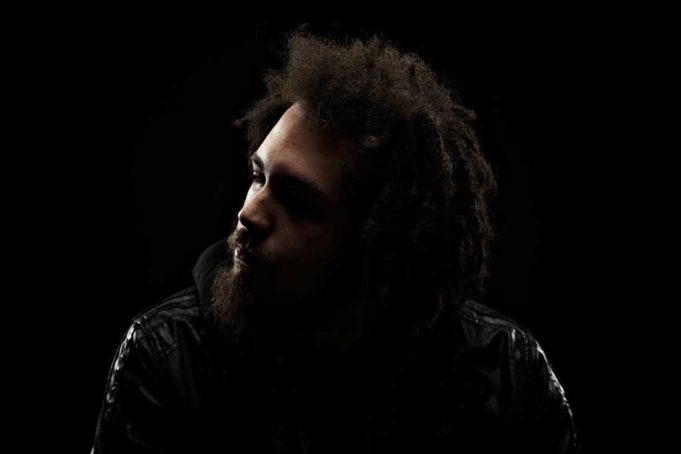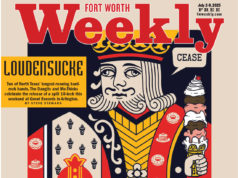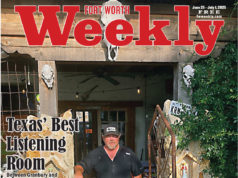As Fort Worth-based rapper Tornup sat at Avoca Coffee during a bustling lunch hour trying to answer a reporter’s (overly) simple question –– How would you describe your rap style? –– the tall, striking Near Southside resident clad in all black stroked his disheveled beard, staring at the floor.
“I’m going to need a minute to think about that one,” he said, with a grin.
For Tornup, born Torry Evan Finley, that question is impossible to answer. He’s on the fourth leg of a five-EP journey (the three previous records were released last year) that he said spells out exactly who he is, but it’s not something he could explain to someone in an elevator ride.
“Each [EP] represents a different pillar in the conceptual universe of Tornup,” he said.
His recordings are concepts within a concept, all of it experimental without being off-putting. Each part of the Oklahoma City native’s gestalt is informed by something different. Every record, he said, was inspired by a different friend and what that person brought out of him, although that’s not necessarily reflected in his lyrics. That person’s impact is more of a synesthetic influence.
His rap style is street-savvy and academic. He’s a lyrical gymnast able to switch tempo, rhyme scheme, and subject matter with ease. As an MC, he’s technically stunning. His arsenal of flows would make even Nas or Big Pun, two of his main influences, jealous.
His latest recording, Utopian Vanguard (Heart In The Funk), due to be released within the next week, is a 15-track saga (which he calls an EP) that sounds like the plot to seasons 1-4 of a television series on Syfy. The album was inspired by his friend, producer, and collaborator Steven Morrow (a.k.a. Ko49). But, he said, it’s also a recording about Fort Worth. Although the songs are not about Fort Worth, his city influenced the work’s vibe and creative energy.
Here’s his how his mind pinballed from his initial concept to something entirely new:
“I thought, ‘I’m going to make all these records about my friends,’ ” he said. “ ‘But what if my friends were a part of this vanguard to protect this utopian city?’ ”
The plot to Tornup and Ko49’s release is a dizzying tale that the rapper calls a cross between Logan’s Run and The Dirty Dozen. The story is set in a futuristic utopian society and the main character is a bureaucrat-turned-military operative-turned-reluctant populist hero.
“No matter how good of a system we put in place, people are always going to screw it up by being people,” he said of the message behind the hip-opera-esque recording. “It’s about not putting your comfort and hope in great people trying to save you.”
For Tornup, the message of his work is front and center –– and the whole reason he started rapping as a freshman in high school in 2006. He was making beats for a friend, rapper John Proctor.
“We were both hip-hop heads,” he said. “I was making beats for him, and he was like, ‘We should both rap on this,’ and I was, like, ‘I don’t know if that’s my thing.’ ‘At least we care,’ ” his friend implored. ” ‘Do you hear these guys on the radio? They don’t even care.’
“Ever since then, I thought the most important part [of being a rapper] is a matter of having a sincere statement.”
As a performer, Tornup is equally experimental and diligent. Last year, he and his former DJ, Berto G, played up to 15 shows a month and toured as far away as Michigan. Now he plays solo for his live shows, in which he deejays, raps, and plays bass –– he was the bassist and frontman for psychedelic sludge-metal band Spacebeach.
“This is a working-class thing,” he said of his frequent playing. “I never thought I’d play out and become Warren Buffett. That’s not the way music works. People don’t invest in something they don’t have a reason to care about.
“There’s three quarters of a million people here,” he said. “They’re not always going to be at the Boiled Owl. You’ve got to play everywhere. You’ve got to bring it to them.”












